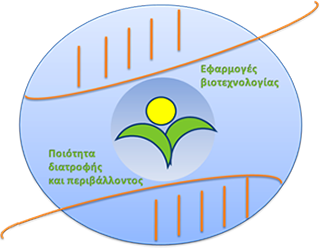Success Stories



Stella Georgiou
The Master’s program provided me with fundamental and advanced knowledge in biotechnology, which forms the basis of molecular analyses. It’s worth mentioning that the knowledge and research experience I gained from this program served as a stepping stone for me to further research in this field and pursue a Ph.D. in the Department of Biochemistry and Biotechnology, with a focus on Molecular Biology and Fish Physiology. After completing my Ph.D., I worked as a Researcher at the Center for Molecular Analyses and Research in Agrinio, Greece.
For the past eight months, I have been working as a postdoctoral researcher at the Institute of Medical and Biological Research of the Academy of Athens (IIBEAA), where I have been studying the interaction between the gut microbiome and the liver in the development and progression of alcohol-induced liver fibrosis through various experiments, including miRNA analysis, transcriptomics, proteomics, ex-vivo, in-vivo, and in-vitro studies.

Aimilia Koukiasa
After completing the program in October 2015 and entering a challenging job market, the Master’s program significantly assisted in my subsequent professional journey. I currently work in a laboratory for genetic and molecular analyses. My resume also attracts considerable interest in the field of quality for international pharmaceutical companies, where my next professional step will soon be.
Beyond my professional development, the Master’s program has helped me gain a more comprehensive understanding of the critical field of Food Biotechnology. It allows me to critically evaluate the latest developments in this rapidly evolving sector.

Eleni Papadopoulou
Browsing the website of the University of Thessaly’s Department of Biochemistry, I found a Master’s program that matched my interests, titled “Biochemistry and Biotechnology – Food Quality and Environment.” I applied in 2013 and graduated in the summer of 2014. I believe that this specific Master’s program provided me with knowledge related to chemistry, such as “Qualitative and Quantitative Analysis Methods – Biomarkers.” Additionally, in combination with the Medical School, the curriculum included courses in Microbiology, Toxicology, Clinical Biochemistry, and more.
The professors taught their courses using PowerPoint presentations, and all lectures were available on the university’s special website. The professors were approachable and always willing to help. The topics covered in the courses were relevant not only to the research aspect of my studies but also to everyday life, lifestyle choices, and the risks associated with certain foods in our bodies.
Some of the subjects that I found particularly engaging and novel included Exercise Biochemistry and Bioethics. I also completed my thesis in the department’s well-equipped laboratories, which I consider to be among the most significant in this field in Greece.
In conclusion, I would like to emphasize that I believe the Master’s program not only helped me secure a position in the food industry in the Magnesia region but also provided me with the opportunity to explore scientific pathways that I may follow in the future!
